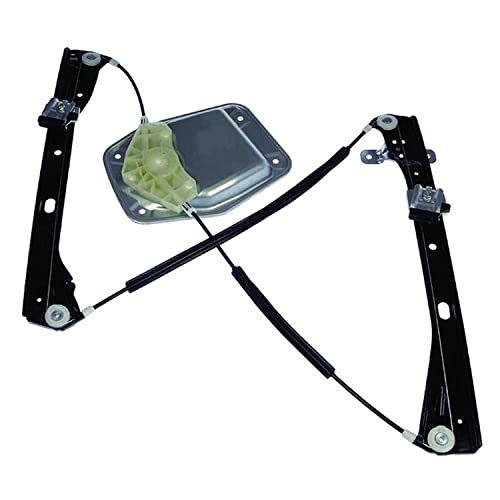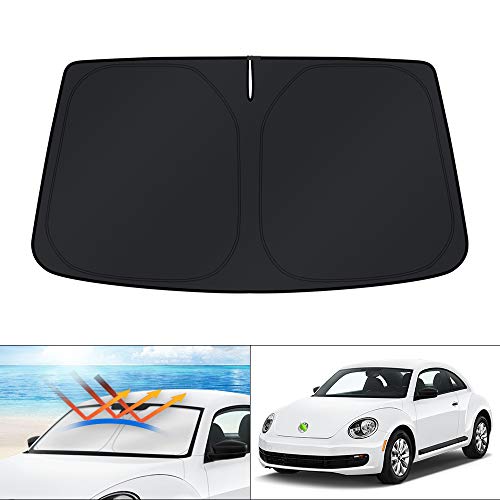You are using an out of date browser. It may not display this or other websites correctly.
You should upgrade or use an alternative browser.
You should upgrade or use an alternative browser.
Fire in the hold!!!
- Thread starter Speedman
- Start date

Help Support Early Bay Forum:
This site may earn a commission from merchant affiliate
links, including eBay, Amazon, and others.
Araon
Well-known member
http://www.Firetecuk.com


LuAn
Well-known member
Something to watch out for:
I notice that the FireTec units can have power, foam or gas as required.
The FireFlex unit that I bought recently is gas and it says in the blurb that it will snuff out a fire pretty much as soon as it starts. I guess a foamy/powder engine bay is better than one that's burned but the way I see it it that if gas will do the same job without needing a big clean up afterwards...
I notice that the FireTec units can have power, foam or gas as required.
The FireFlex unit that I bought recently is gas and it says in the blurb that it will snuff out a fire pretty much as soon as it starts. I guess a foamy/powder engine bay is better than one that's burned but the way I see it it that if gas will do the same job without needing a big clean up afterwards...
slammedkustom
Well-known member
the only problem with bays is that the fire often ruptures the fuel line which means fuel still pours out onto flames or a hot engine and re ignites so a gas one may not be the best, i know its messy but the foam would probably be better :?:
G
Guest
Guest
a close call :shock:
that picture of the two foot prints and the extinguisher ring is quite poingnant!
that picture of the two foot prints and the extinguisher ring is quite poingnant!

$42.47
Tamiya 51616 VW Bus Type 2 (T1) Remote Control Car Accessory Body RC Model Making
Hobby Etc | Authorized ✅

$27.95 ($13.98 / Count)
Marketplace Auto Parts Window Crank Handle Set of 2 - Chrome with Black Knob - Compatible with 1968-1978 Volkswagen Beetle
Parts Geek LLC

$21.60
$29.91
ハセガワ Hasegawa HMCC11 1:24 Scale VW Type 2 Pick-Up Truck Model Building Kits
Amazon Japan
Araon
Well-known member
one of the downfalls with gas is the re-ignition, foam and dry powder smother the area a retain a blanket over the area. Gas dissipates quickly and your still left with a hot engine bay....
Powder is a right bitch to clean up though as its extremely fine and it gets everywhere..
The foam is easily washed out.
Pros and cons with them all but foam is suitable for fuel fires as it lies on top of the fuel and forms a crust which excludes oxygen it also cools the area.
Dry powder again lies on top of the fuel and excludes oxygen. suitable for electrically based fires
Gas generally CO2 rapid release forces oxygen out of the immediate area rapid cooling but warms very quickly and dissipates almost as quick.
I would always go foam where fuel is involved.....
Powder is a right bitch to clean up though as its extremely fine and it gets everywhere..
The foam is easily washed out.
Pros and cons with them all but foam is suitable for fuel fires as it lies on top of the fuel and forms a crust which excludes oxygen it also cools the area.
Dry powder again lies on top of the fuel and excludes oxygen. suitable for electrically based fires
Gas generally CO2 rapid release forces oxygen out of the immediate area rapid cooling but warms very quickly and dissipates almost as quick.
I would always go foam where fuel is involved.....
LuAn
Well-known member
Interesting points about gas/foam however I'm wondering how significant they are i.e. should I perhaps go out and buy a foam one instead of the one I just bought?
Does the engine get so hot that petrol spilt onto it from a broken hose will ignite spontaneously? I thought the problem is that it would be vaporised and that the vapour would be ignited by a spark (most probably from the generator)? Isn't it the case that a leak that causes a fire will also cut off the fuel and stop the engine (hence no more sparks to reignite a fire)?
I don't know the answers and am just wondering about it. You see the other thing that appealed to me about gas is that if it gets triggered accidentally by some twit (why y'all lookin' at me? ;-)) clouting the tube when he's working on the engine... Given that my van has survived for 36 years and I'm keen to maintain the hoses, I wonder whether there is more chance of me, twit that I am, setting the extinguisher off accidentally than it actually being needed to put out a fire? Of course if it does ever have to put out a fire then I need to be confident that it's going to do the job.
Does the engine get so hot that petrol spilt onto it from a broken hose will ignite spontaneously? I thought the problem is that it would be vaporised and that the vapour would be ignited by a spark (most probably from the generator)? Isn't it the case that a leak that causes a fire will also cut off the fuel and stop the engine (hence no more sparks to reignite a fire)?
I don't know the answers and am just wondering about it. You see the other thing that appealed to me about gas is that if it gets triggered accidentally by some twit (why y'all lookin' at me? ;-)) clouting the tube when he's working on the engine... Given that my van has survived for 36 years and I'm keen to maintain the hoses, I wonder whether there is more chance of me, twit that I am, setting the extinguisher off accidentally than it actually being needed to put out a fire? Of course if it does ever have to put out a fire then I need to be confident that it's going to do the job.
If it puts out an engine fire then thats all that matters imo  rather spend a few quid cleaning it, than having a burnt van :shock:
rather spend a few quid cleaning it, than having a burnt van :shock:
I have both, a powder and a foam :wink: just in case :wink:
I have both, a powder and a foam :wink: just in case :wink:
rustydiver
Well-known member
Is there a guide on here that will help us dummies check over the important bits. Done what i can see its the bits you cant see im concerned about.
Eg from petrol tank to engine bay :?:
Done the bits up the air vents, they were pigs to get to.
Eg from petrol tank to engine bay :?:
Done the bits up the air vents, they were pigs to get to.
Araon
Well-known member
Yes in all fires it is the vapour that burns and not the substance but the likes of petrol has a very low flash point thus heat will cause the fuel to evaporate quicker and ignite. Sparks will deffinately ignite it as the temp at spark is fooking hot hundreds/thousands degrees C...the flash point of petrol is -43 degrees C...
Foam crusts over and permanently cuts off the oxygen - remember the fire triangle oxygen - heat - fuel remove any one of these and no fire....
With gas you remove the oxygen for a time but it then dissipates and you have all three present fairly soon after .
Foam crusts over and permanently cuts off the oxygen - remember the fire triangle oxygen - heat - fuel remove any one of these and no fire....
With gas you remove the oxygen for a time but it then dissipates and you have all three present fairly soon after .
LuAn
Well-known member
Araon said:the flash point of petrol is -43 degrees C...
I wasn't entirely sure what "flash point" meant so I looked it up on Wikipedia:
http://en.wikipedia.org/wiki/Flash_point
According to that it's the temperature at which an ignitable vapour can for and their figure for petrol is very similar to what you say.
HOWEVER, the vapour still needs to be lit in order to burn and, according to that article, the auto-ignition temperature for petrol is 246 degrees C.
As I understand it that means that if you pour petrol on your hot engine it will vaporise (because the temp is above -43) however it won't ignite (because the temp is less than 246). You'll need a spark or an engine casing that's hotter than 246 to actually get it to ignite.
Does that sound right or am I getting muddled (I am a bear of very little brain). ;-)
slammedkustom
Well-known member
or for the rest or us
Fire = Bad
Fire + Camper = really bad
Fire + Camper + Petrol = really really bad go boom! :shock:
Fire extinguisher =Good
Doughnuts = really good!
not sure why the last bit is relevant it just is! :wink:
Fire = Bad
Fire + Camper = really bad
Fire + Camper + Petrol = really really bad go boom! :shock:
Fire extinguisher =Good
Doughnuts = really good!
not sure why the last bit is relevant it just is! :wink:
VWAIRCOOLED
Well-known member
I was wondering,what is it that actually sets the automatic system going off in the event of a fire? Is it a smoke detector?
Araon
Well-known member
The ignition temp is in the region of 200 - 300 (less for higher octane) it is not uncommon for fuel to vaporise and ignite when dripped on exhausts and certain parts of the engine case with regards aircooled and other high temp engines.
because its in its vaporised form it doesnt require a lot to ignite you need to include density of vapour etc....with foam on the fuel it doesnt vapourise as quickly as it is contained within the crust.
Though will admit you have to be one unlucky bastard for it to go again..
Saying that it was only the other week I was refueling my works van and turned round to see some nob with a *** in his face filling unleaded into his mini (BMW)
because its in its vaporised form it doesnt require a lot to ignite you need to include density of vapour etc....with foam on the fuel it doesnt vapourise as quickly as it is contained within the crust.
Though will admit you have to be one unlucky bastard for it to go again..
Saying that it was only the other week I was refueling my works van and turned round to see some nob with a *** in his face filling unleaded into his mini (BMW)
slammedkustom
Well-known member
the heat from the fire breaks the hose, it splits at a certain level releasing the gas, powder or foam :wink:
Araon
Well-known member
The tubing ran around the bay detects and directs the suppressant. although detects is a bit of a mis lead it melts and the extinguisher fires off......
Engine bay covered in **** but damage limited.
Engine bay covered in **** but damage limited.
Well I've just got back from delivering the camper to our mechanic, he's had a look over it and said that we were lucky, another minute and the fuel hose would have gone completely and £45 worth of unleaded in the tank would have gone bang.
The cause.......a porous fuel pipe that was fuel soaked, me trying and failing to start the engine had forced more fuel through the leak and it ignited on the HT leads it was run over when the van was built (why VW put fuel pipe over the dizzy i don't know)
The outcome.....new leads, dizzy, fuel pump and wiring a damn good clean out and reroute the fuel pipes away from that area, should be done in the next few days and after a £100 bill we should be rolling again
:wink:
The cause.......a porous fuel pipe that was fuel soaked, me trying and failing to start the engine had forced more fuel through the leak and it ignited on the HT leads it was run over when the van was built (why VW put fuel pipe over the dizzy i don't know)
The outcome.....new leads, dizzy, fuel pump and wiring a damn good clean out and reroute the fuel pipes away from that area, should be done in the next few days and after a £100 bill we should be rolling again
:wink:
Similar threads
- Replies
- 29
- Views
- 3K



























